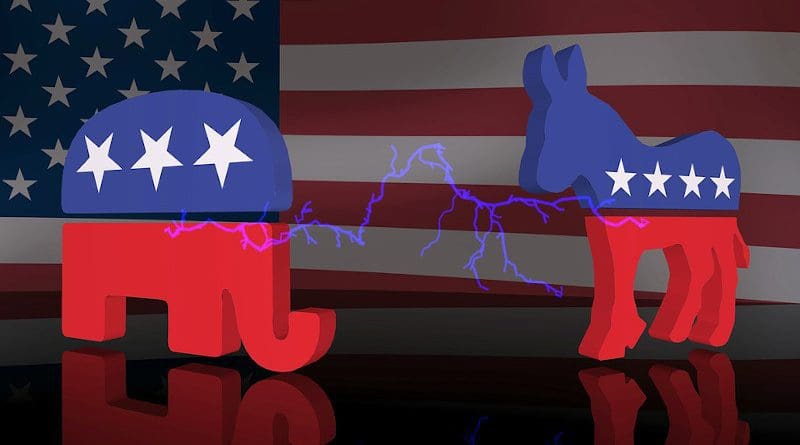Where The US Midterm Battle Lines Have Been Drawn – OpEd
By Arab News
By Maria Maalouf *
As the date approaches for the US midterm elections for Congress — in which all 435 seats in the House of Representatives and a third of Senate seats are up for grabs, in addition to 39 state gubernatorial votes — the battles between Republican and Democratic candidates are getting fiercer.
While the Democrats seek to retain their majority in the House and control of the Senate, the Republicans want a majority in one or both houses of Congress. Amid the severe political polarization in the US and the fierce competition between Democrats and Republicans, American voters differ on the most critical issues that have preoccupied public opinion over recent months, including inflation, economic conditions and the issues of canceling the right to abortion and limiting the bearing of arms.
Voter turnout is likely to rise in light of the intensely polarized situation, with voters seeking to endorse candidates who embrace their visions according to their political affiliations. An August opinion poll revealed the expected rate of voter participation in the midterm elections, with more than eight out of 10 registered voters saying they intend to vote on Tuesday. Some 82 percent of Democrats confirmed their planned involvement, along with 88 percent of Republicans and 80 percent of independents.
When participants were asked how much they cared about the election on a scale of one to five — with one being very interested and five not interested at all — about seven in 10 indicated that they were very interested. The Republicans again slightly outperformed the Democrats in terms of their level of interest. The groups most interested in the elections are white college graduates, especially male and older voters.
The impact of the impending midterms may be decisive across the country, given the diversity and importance of the issues on which each party’s candidates are focusing and the fierce electoral competition between Democratic and Republican candidates in the context of the political polarization of the country.
On the one hand, President Joe Biden has called on Americans to give him a sufficient majority to bypass congressional regulations to veto a nationwide ban on abortion or to outlaw offensive weapons. Biden said that Americans have a choice, noting that abortion, firearms and the health system are all on the ballot.
On the other hand, Republicans have vowed to lead a fierce fight against inflation and the battle against drugs and to continue their offensive against transgender athletes. Republican candidates have also promised to open a series of congressional investigations against Biden, COVID-19 pandemic adviser Anthony Fauci and Attorney General Merrick Garland if they secure a majority in both houses of Congress. They also plan to stop the work of the commission investigating the attack on Capitol Hill by supporters of former President Donald Trump.
Although abortion and gun ownership are of interest to both parties, the Democrats’ prioritization of these issues appears to differ from Republicans’ concerns. While Democrats focus on programs to improve healthcare, climate change and election integrity, Republicans place the issues of immigration, tax and inflation at the top of their priority list.
It is noteworthy that the issue of election integrity has become an issue, as Democrats insist on reforming the electoral system to facilitate voting, while Republicans are calling for it to be improved to prevent election fraud, as they are skeptical about the results of the 2020 elections. In addition, Republican voters have become more likely and Democrats less likely to view foreign policy and the coronavirus outbreak as significant issues in their voting. While the economy remains the dominant issue ahead of the midterm elections, abortion has increased significantly in importance among Democrats after the Supreme Court decided to end the federal guarantee of the right to legal abortion in the US.
• Maria Maalouf is a Lebanese journalist, broadcaster, publisher and writer. She has a master’s degree in political sociology from the University of Lyon.

